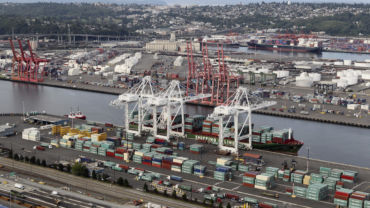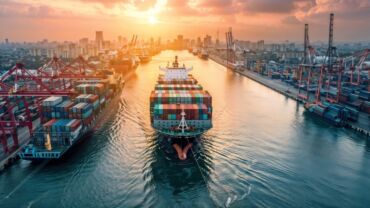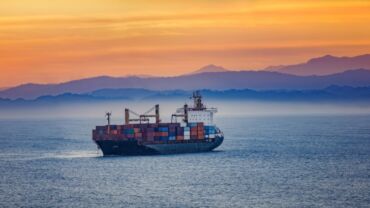In an era of deglobalization, crafting a standard set of rules for international e-commerce is becoming increasingly difficult
E-commerce has grown so quickly and become such a dominant force in global trade that lawmakers and regulators the world over have had difficulty keeping up with the many challenges of an internet-enabled global marketplace.
From data privacy and consumer protection to issues of forced labor, counterfeiting, intellectual property theft, taxation, and more, e-commerce challenges many of the rules that govern traditional commerce. Consequently, those who are responsible for crafting the rules of governance for e-commerce are quite literally making it up as they — and we — go along.
The latest front in this ongoing effort to harness the power of the internet without strangling it is an attempt — by such global institutions as the World Trade Organization (WTO) and the World Commerce Organization (WCO), along with lawmakers from the United States, the European Union, and many other countries — to devise a binding set of rules for e-commerce that everyone can agree upon, or at least accept to try, for now, until some better ideas come along.
One of the more problematic issues in the debate about how to regulate global e-commerce is the fact that the traditional rules governing international trade were devised with large multinational corporations in mind, not small businesses. Until the internet came along, after all, international trade was dominated by large companies that shipped equally large quantities of goods through ports (by air, sea, and land), where customs agents catalogued shipments and governments used that information to collect tax revenue, enforce compliance, formulate economic policy, and monitor trade balances, among other activities.
E-commerce upended the traditional trade model by giving small businesses and even individual people the means to sell almost anything, to anyone, anywhere in the world. Now, people everywhere sell an unimaginable variety of goods through marketplaces such as Amazon, Alibaba, eBay, and Etsy — and small businesses can have a global reach through websites they manage from home.
E-commerce: a mixed blessing
All of which has been great as far as expanding the global economy is concerned. But for governments trying to capture tax revenue and exert some measure of control over cross-border business transactions, including transactions that are purely digital in nature (for example, cloud-based software, music downloads, e-books, etc.), e-commerce has been somewhat of a mixed blessing. Certainly, it has given people all over the world the tools to start and expand their own businesses, but smaller countries outside the US, EU, and China have also seen e-commerce drain their cities and municipalities of much-needed tax revenue.
Efforts are currently underway to give governments more control over e-commerce regulation and taxation, but there are concerns that some of the proposed solutions may saddle small businesses with extra costs, restrictions, and rules that could stifle the very dynamism that made e-commerce such a successful economic juggernaut in the first place.

One of people most concerned about this issue is Marianne Rowden, who was for years the Private Sector Co-Chair of the Work Group on E-commerce for the WCO, which represents customs administrations around the world. In that role, she helped develop a framework of standards for e-commerce, but grew increasingly concerned that the world was developing two separate trading rules: one for e-commerce and one for traditional trade.
“Based on my experience, I knew that nobody was representing the sellers in e-commerce, who tend to be micro and small companies, let alone the other service providers who serve the e-commerce community,” Rowden recalls.
To address this inequity, she and some of her fellow committee members at the WCO started the E-merchants Trade Council (EMTC). “Our goal was to launch a global trade association that represents the entire ecosystem of e-commerce, which is comprised of e-sellers, marketplaces, logistics companies, and the various service providers that serve the e-sellers and make e-commerce happen,” Rowden explains.
Simplification and democratization
In her role as CEO of the EMTC, Rowden has worked with the WCO, WTO, and the EU, and has advocated before the U.S. Congress about the importance of crafting trade policies that are fair to the small businesses that have helped make e-commerce a $6.5 trillion mainstay of modern business.
“Our mission is to simplify and democratize e-commerce globally,” Rowden says, adding that now that e-commerce has grown to the point where it is expected to make up 24% of all retail sales by 2026, “e-commerce is coming under increased scrutiny.”
The problem, she says, is that “e-commerce does not fit comfortably within the existing statutory and regulatory regime for international trade, or just commerce in general.” Indeed, there are scores of issues to address, she explains, but the common denominator in many of them is scale. “E-commerce has a scale problem on both the front- and back-end.”
On the front-end are the small-business e-sellers that, if they were suddenly required to adhere to proposed rules for customs reporting, could incur so many extra costs that their businesses might struggle or even fail. On the back end is the sheer volume of low-cost goods traveling across borders that, if they were subject to traditional trade rules and customs duties, most governments — including the US — would not have the technology or personnel to process them.
The result, Rowden says, would likely be “higher costs, fewer choices, and slower service.”
Common ground is hard to find
In her role at the EMTC, Rowden advocates on behalf of internet-based small businesses to committees and delegations all over the world. Often, that means balancing the interests of the US, the EU, and the rest of the globe in a whack-a-mole attempt to find common ground.
“Representing business can be a challenge, but the biggest challenge is that we just want a common set of rules,” Rowden says.
In the US, for instance, there’s often a debate about whether to follow one standard — a federal standard — or 50 separate state standards, plus standards from the District of Columbia, Puerto Rico, and the U.S. Virgin Islands.
“I’m still watching the chaos caused by the U.S. Supreme Court’s Wayfair decision,” Rowden laments — a decision that gave individual states the right to set their own rules for collecting sales tax on interstate internet sales.
As the world’s second-largest market behind China, the US is also not in the habit of following the rest of the world when it comes to trade. For example, the WTO will meet in late-February to discuss ratification of a set of digital trade provisions that the US helped develop. In October, however, the Biden Administration pulled its support for the WTO’s proposed digital trade rules and the Indo-Pacific Economic Framework, an initiative that the US itself launched as recently as 2022.
“It’s ironic, because the US has always been in favor of trade liberalization,” Rowden says of the Biden Administration’s WTO decision — but the politics are different now.
“The WTO, WCO, and our organization — what we’re trying to do is come up with a global trading system with equal standards for everyone,” Rowden says. “Unfortunately, we’re now in a period of de-globalization, and I don’t think these international agreements are going to make it across the finish line in time.
“It would be a tragedy if e-commerce was a victim of deglobalization, but that’s what may happen,” she adds, although she says she will do everything in her power to make sure that doesn’t happen.







